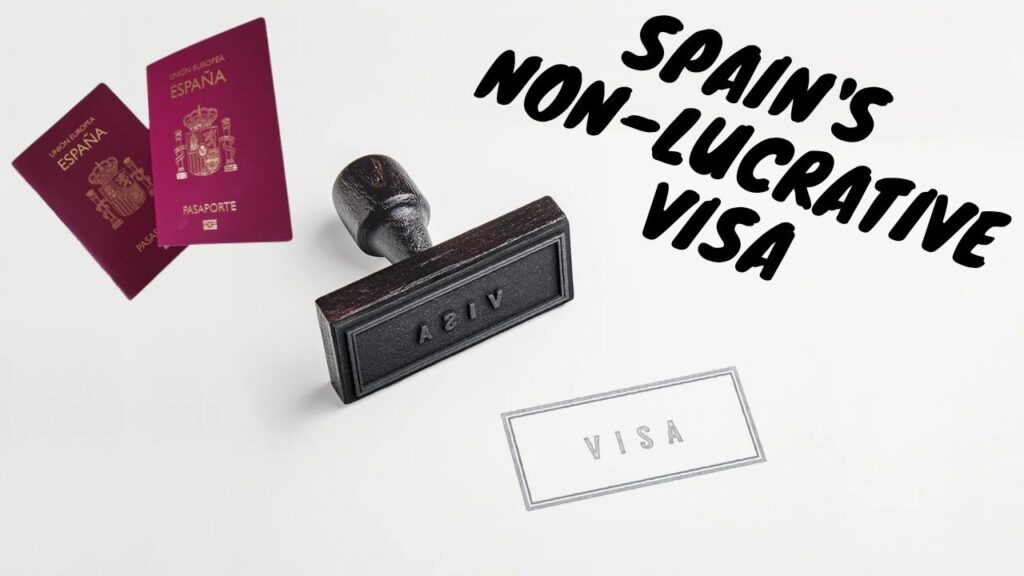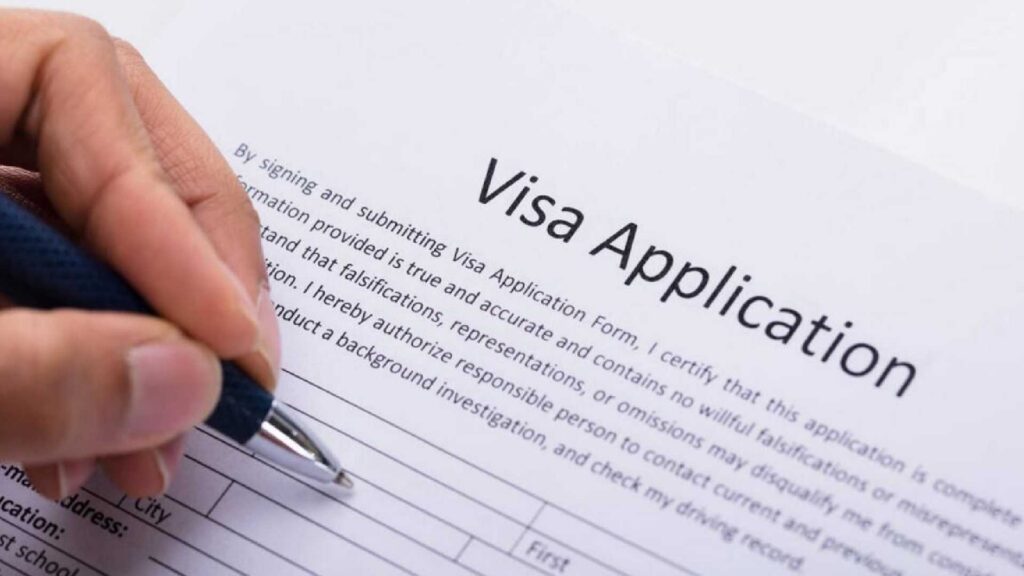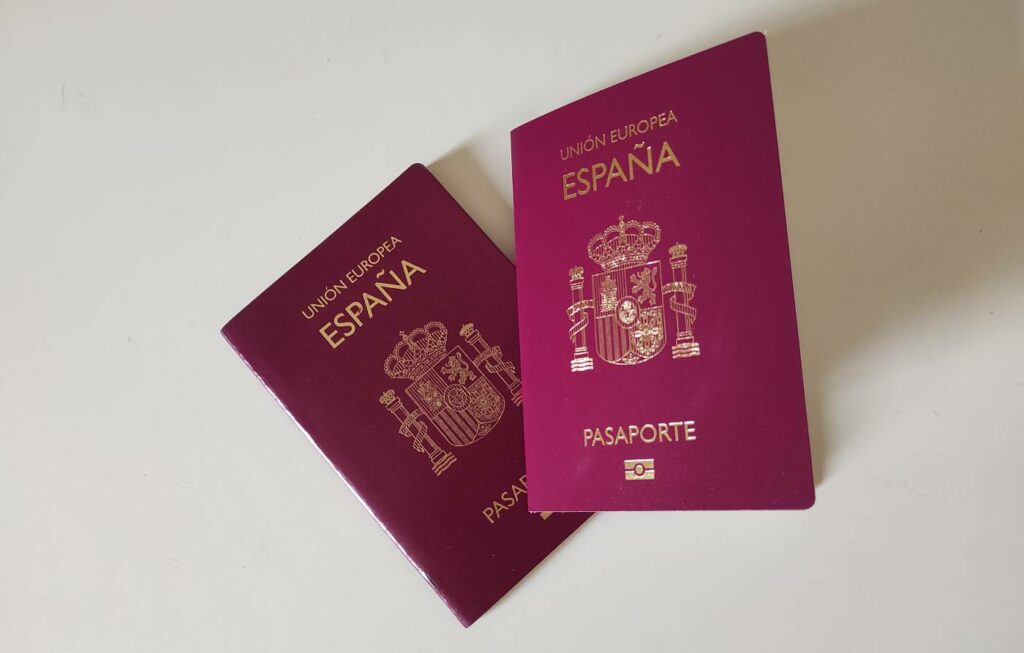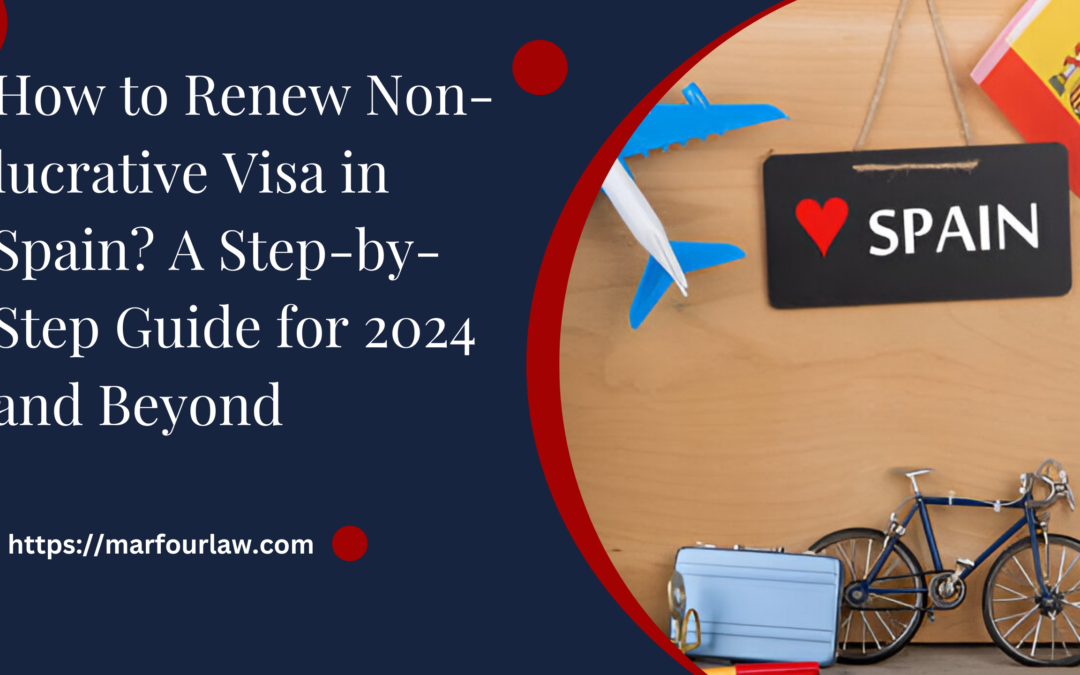If you’re living in Spain with a Non-lucrative Visa, you’ll eventually need to renew it to stay legally in the country. The process to Renew Non-lucrative Visa in Spain may seem daunting, but it doesn’t have to be. In this guide, we’ll walk you through each step, explain the key requirements, and provide helpful tips to make the renewal smooth. Whether you’re already familiar with the process or renewing it for the first time, this blog covers everything you need to know. From Spain’s non-lucrative visa requirements to the IPREM for 2024, we’ll ensure you’re prepared for every part of the renewal.
When Should You Renew Non-lucrative Visa in Spain?
Renew Non-Lucrative Visa in Spain is essential to maintain your legal status in the country. Your initial visa is valid for one year, and you should start the renewal process at least 60 days before it expires. This gives you ample time to gather the necessary documents and handle any potential delays in the application process.
Duration of Renewal
When you renew your Non-Lucrative Visa, the new visa will typically be valid for an additional two years. This means you can continue living in Spain without needing to worry about your visa status for a longer period. After these two years, you can apply for another renewal, which could grant you another two years of residency.
Required Documentation for Renewal
To renew your Non-Lucrative Visa, you’ll need to submit several documents similar to those required for your initial application. This includes proof of financial means to support yourself during the renewal period, updated health insurance coverage, and any additional documents that demonstrate your continued residency in Spain. Bank statements, income proofs, and a clean criminal record are typically necessary to show you still meet the visa requirements.
Importance of Financial Stability
One key aspect of the renewal process is demonstrating ongoing financial stability. You need to provide evidence that you can continue to support yourself without working. This might include bank statements showing sufficient funds or documentation proving regular income, such as pension payments or investment returns. It’s crucial to ensure your financial situation aligns with the visa’s requirements to avoid complications during the renewal.
Staying Informed About Changes
Regulations regarding visas can change, so it’s a good idea to stay informed about any updates to the Non-Lucrative Visa process. Regularly checking with the Spanish consulate or immigration services will help you stay updated on any changes that might affect your renewal application.
Consequences of Not Renewing on Time
If you fail to renew your Non-Lucrative Visa before it expires, you risk losing your legal status in Spain. This can lead to fines, deportation, or difficulties re-entering the country in the future. So, staying proactive and organized is essential to ensure a smooth renewal process, allowing you to continue enjoying life in Spain without interruptions.
What is the Non-Lucrative Visa?
The Non-Lucrative Visa in Spain allows non-EU citizens to live in Spain without working or engaging in professional activities. It’s perfect for people who want to experience the Spanish lifestyle, retire, or simply take a long break without needing to find a job. While you cannot work in Spain under this visa, you can enjoy an extended stay for up to one year, with the option to renew.

Eligibility for the Non-Lucrative Visa
To be eligible for this visa, you must prove that you have sufficient financial resources to live in Spain without working. The visa is ideal for retirees, people living on passive income, or those who have saved enough to support themselves during their stay. You must be a non-EU citizen to apply, and showing stable income is key to your application’s success.
Financial Requirements for the Non-Lucrative Visa
One of the main criteria for this visa is financial stability. You need to demonstrate that you can support yourself while living in Spain. As of 2024, the minimum annual income required is approximately €28,800 for a single person. This is based on 400% of the Spanish IPREM (a government index). For each additional family member, you’ll need to add around €7,200 to this amount. This ensures that you won’t become a financial burden on the country’s social system.
Health Insurance and Medical Coverage
Another important requirement is health insurance. Applicants must have private health insurance coverage from a provider authorized to operate in Spain. The insurance needs to cover any medical expenses you may incur, as you won’t have access to the Spanish public healthcare system under this visa. The insurance should be full coverage with no co-payments to ensure that all your health needs are taken care of.
Application Process and Documents Required
The application process for the Non-Lucrative Visa involves gathering several key documents. You will need your passport, proof of financial means (such as bank statements), medical insurance, a clean criminal record, and a medical certificate. All documents must be translated into Spanish and apostilled. Once you have all the paperwork ready, you will submit your application to the nearest Spanish consulate.
Living in Spain with the Non-Lucrative Visa
Once you’re approved, you can live in Spain for up to one year. You are free to travel in and out of the country, and you can renew your visa for an additional two years. After five years of continuous residency, you may be eligible for permanent residency, which could open the door to more long-term opportunities in Spain. While you can’t work, you can enjoy everything Spain has to offer, from its rich culture to its beautiful landscapes.
Spain Non-lucrative Visa Requirements for Renewal
Renewing your non-lucrative visa in Spain is essential for those who wish to continue enjoying the benefits of residing in this beautiful country without engaging in work. To ensure a smooth renewal process, it’s important to understand the requirements and steps involved.

Timing Your Renewal Application
You need to apply for the renewal of your non-lucrative visa at least 60 days before your current visa expires. Starting early helps you avoid last-minute stress and gives you time to gather all necessary documents.
Required Documents for Renewal
When you’re ready to renew your visa, make sure you have the following documents prepared:
- Application Form: Obtain the official application form for the renewal of your non-lucrative visa. This form can usually be found at your local immigration office or downloaded from their website.
- Valid Passport: Your passport must be valid for at least one more year from the renewal date. Include copies of the pages showing your personal information and your current visa.
- Proof of Financial Means: You must provide evidence that you can support yourself financially while living in Spain. Acceptable documents include recent bank statements, proof of pension income, or other financial documents covering the last three to six months.
- Health Insurance: Obtain private health insurance that is valid in Spain. It should cover you comprehensively without any co-payments and must be in effect for the duration of your stay.
- Criminal Record Check: Some regions may require a criminal record check from your home country or any country where you’ve lived for a significant period.
- Proof of Residency: Provide documents that show you’ve been residing in Spain. This can include utility bills, rental agreements, or any official mail sent to your Spanish address.
Submission Process
Once you have all your documents ready, it’s time to submit your application. You will typically need to go to the immigration office responsible for your area. Ensure your documents are organized and consider making copies for your own records. After submitting your application, you’ll receive a receipt, which is essential as it proves your legal status in Spain while your application is processed.
What to Expect After Submission
After you submit your renewal application, the processing time can vary. It’s important to be patient during this period. If your application is approved, you’ll receive a new residency card, typically valid for an additional two years.
Avoiding Common Pitfalls
To make the renewal process smoother, keep these common mistakes in mind:
- Missing Documents: Ensure you have all the required documents to avoid delays.
- Late Application: Start the renewal process well in advance to prevent any last-minute issues.
- Ignoring Changes: If your circumstances change, like moving to a new address or changes in your financial situation, be sure to update this information in your application.
Renewing your non-lucrative visa in Spain can be straightforward if you stay organized and follow the necessary steps. By preparing your documents ahead of time and adhering to the guidelines, you can continue to enjoy life in Spain without any hassles. If you need assistance or have any questions during this process, the team at Marfour International Law Firm is ready to help you every step of the way!
How to Submit Your Renewal Application?
Submitting your renewal application can be done online or in person at your nearest immigration office. The process may vary slightly depending on the region where you live in Spain.
Online vs In-Person Renewal Process
While some prefer submitting their application in person, the online method is becoming more common and convenient. It’s faster and allows you to track the status of your application from home.
Required Documents for Non-lucrative Visa Renewal
Ensure you have all the necessary documents, such as your passport, current visa, proof of income, health insurance, and proof of residency. Missing even one document could delay your renewal process.
IPREM 2024 and Its Impact on Non-lucrative Visa Renewals
The IPREM is a key factor when renewing your non-lucrative visa. It determines the minimum financial threshold you must meet to prove that you can support yourself in Spain.

How Much is the IPREM for 2024?
For 2024, the IPREM is set at approximately €600 per month. However, for visa purposes, you need to demonstrate an income of at least 400% of the IPREM, which means you’ll need to show around €2,400 per month, or €28,800 annually.
Impact of IPREM on Your Renewal
If your income doesn’t meet the IPREM threshold, your renewal may be rejected. Ensure that you have sufficient savings or other forms of passive income to prove your financial stability.
What Happens After You Submit Your Renewal Application?
Submitting your renewal application for a non-lucrative visa in Spain is just the beginning of the process. Here’s a breakdown of what to expect next.
Receipt of Application
Once you’ve submitted your application, the immigration office will give you a receipt. This receipt is an important document, as it serves as proof that you have applied for the renewal. It confirms your legal status in Spain while your application is being processed. Keep this receipt safe, as you may need it for various purposes during the waiting period.
Processing Time
The processing time for a non-lucrative visa renewal can vary widely depending on the immigration office and their current workload. Typically, it can take anywhere from a few weeks to a couple of months. During this time, the authorities will review your application and verify the submitted documents.
Potential Requests for Additional Information
In some cases, the immigration office may need more information or documentation to complete your application. If they require additional details, they will contact you through the information you provided in your application. It’s essential to respond promptly to any requests to avoid delays in the processing of your renewal.
Approval Notification
Once your application has been reviewed and approved, you will receive a notification. This may come via email or regular mail. The notification will inform you that your non-lucrative visa renewal has been granted and will outline any next steps you need to follow.
Collecting Your New Residency Card
After receiving your approval notification, you will need to go to the immigration office to collect your new residency card. When you go to collect it, make sure to bring the following:
- Your passport
- The approval notification you received
- Any additional documents that may be required
Validity of Your New Visa
The new residency card you receive will typically be valid for an additional two years. This card allows you to continue living in Spain without the need to work, provided you maintain your financial means and adhere to the visa conditions.
Continued Compliance
It’s important to remember that even after your renewal is approved, you must continue to comply with the requirements of your non-lucrative visa. This includes maintaining adequate financial resources and health insurance, as well as renewing your residency card when the time comes again.
Submitting your non-lucrative visa renewal application is a crucial step in continuing your stay in Spain. By understanding what happens next, you can stay informed and prepared throughout the process. Should you have any questions or need assistance, don’t hesitate to reach out to Marfour International Law Firm. We’re here to help you navigate this journey smoothly!
FAQs
What is the minimum income required for renewing a non-lucrative visa in Spain?
The minimum income required is based on the IPREM. In 2024, you need to show at least €2,400 per month or €28,800 annually.
Can I work with a non-lucrative visa in Spain?
No, the non-lucrative visa does not allow you to work in Spain. It is designed for people who can support themselves without employment.
How long does the non-lucrative visa renewal process take?
It usually takes around three months to get a response after submitting your renewal application.
What happens if my non-lucrative visa renewal is denied?
You have the option to appeal the decision, often with the help of an immigration lawyer.
Do I need to speak Spanish to renew my visa?
While it’s not required to speak Spanish, having a basic understanding can be helpful when dealing with officials or documents.
Conclusion
Renewing your non-lucrative visa in Spain may seem like a lot of work, but with proper preparation and understanding of the requirements, the process can be straightforward. By keeping up with the IPREM for 2024, ensuring you have the right documentation, and applying on time, you can continue to enjoy your life in Spain without any interruptions. Whether you’re renewing for the first time or you’re already familiar with the process, following this guide will help you avoid any major pitfalls

